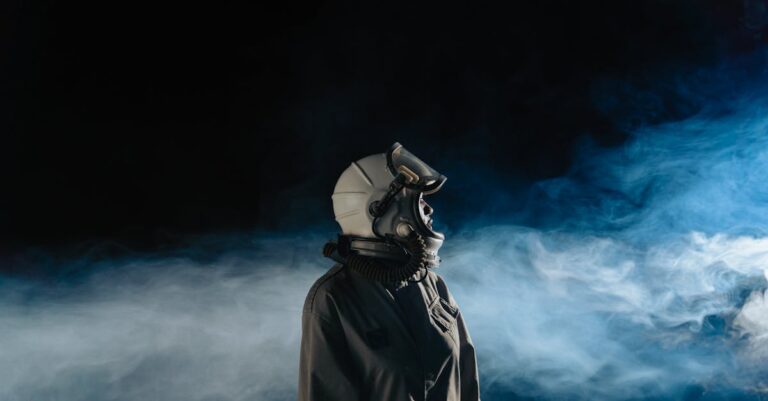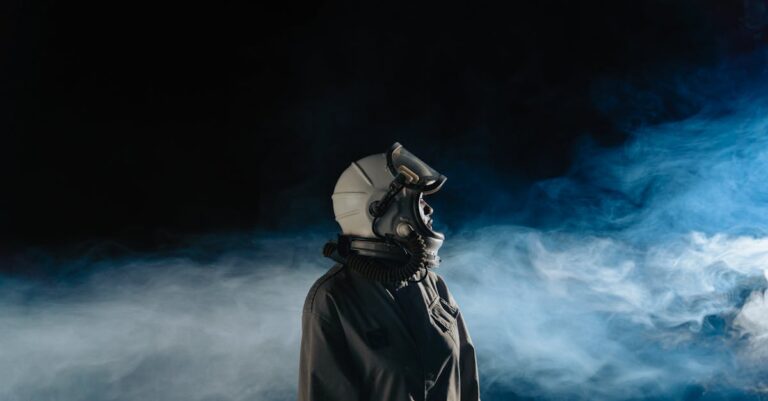
The air inside the *Odyssey* felt thinner than usual, as if the ship’s life support had begun siphoning more than oxygen. Captain Mara Voss adjusted her gloves, the synthetic fibers creaking like old leather, and stared at the flickering console before her. The readings were impossible—no radiation, no gravitational anomalies, just a steady hum that vibrated through the hull like a heartbeat. “Status?” she asked, her voice flat, though her fingers tightened on the edge of the control panel.
“Still no data,” replied Kael, the engineer, his tone clipped. His reflection in the glass of the observation deck showed a man too young to have seen a planet in decades. “The sensors are… blind. Like we’re inside a vacuum but not a real one.” He tapped the console, and the lights dimmed for a fraction of a second before snapping back, casting long shadows across the room.
“We’re not in a vacuum,” Mara said, though the words felt hollow. The *Odyssey* was a research vessel, not a warship, and its systems were designed to withstand the void—not to be swallowed by it. She turned to Dr. Lira Chen, the mission’s lead scientist, who stood rigid near the data terminal, her fingers hovering over the keyboard. “Lira?”
Lira didn’t look up. “There’s a pattern,” she murmured, her voice barely above a whisper. “It’s not random. It’s… structured. Like a language.” She paused, then typed a command. The screen flared with data streams—numbers, symbols, and something else, something that pulsed like a living thing. “This isn’t natural. Someone—or something—is sending this.”
Mara’s pulse quickened, but she kept her face neutral. “We’re alone out here.”
“Not anymore,” Lira said.
The ship shuddered. Not a violent jolt, but a slow, deliberate tremor, as if the *Odyssey* had been caught in the grip of an unseen hand. The lights flickered again, and this time, the darkness lasted longer. Mara’s breath came shallow as she watched the emergency systems activate—sirens wailing, oxygen levels stabilizing, but the hum persisted, louder now, like a whisper just beyond hearing.
“What the hell was that?” Kael asked, his voice tight.
“I don’t know,” Mara said. “But we’re not alone.”
The static veil had begun.
—
The *Odyssey*’s corridors were silent, save for the rhythmic thud of the life support system and the occasional hiss of pressurized air. Mara moved quickly, her boots clicking against the metal floor as she passed the crew’s quarters, the galley, and the storage bay. Each space felt heavier than before, as though the ship itself had grown tighter, more claustrophobic.
She found Lira in the research lab, hunched over a terminal, her face lit by the cold blue glow of the screen. The data streams had changed—no longer random numbers but sequences, patterns that shifted and reformed like living things. “What’s happening?” Mara asked, her voice low.
Lira didn’t look up. “It’s learning,” she said. “Or adapting. Every time we try to decode it, it changes. It’s not just sending data—it’s responding.”
“To what?”
“To us.”
Mara’s stomach clenched. She glanced at the terminal, then at Lira. “You’re saying this thing is… aware?”
“I’m saying it’s not random,” Lira said. “And I’m saying we need to figure out what it wants before it figures out what we are.”
A sudden burst of static filled the lab, sharp and piercing. Mara flinched, her hand flying to the sidearm at her hip. The lights flickered again, and this time, the darkness was deeper, colder.
“What was that?” she asked.
Lira’s fingers flew across the keyboard. “It’s… testing us.”
The static grew louder, then stopped. The lab was silent again, but the air felt heavier, as if the very molecules had thickened. Mara exhaled slowly, her breath fogging in the cold. “We need to shut it down,” she said.
“We can’t,” Lira said. “Not yet. If we do, we might lose everything.”
Mara stared at her, the weight of the words settling in her chest. “Then we find another way.”
—
The *Odyssey*’s command deck was a maze of screens, consoles, and blinking lights, each one feeding data into the ship’s central system. Mara stood at the center, her hands on the control panel as she scanned the readings. The static veil had grown stronger, its presence now a constant hum that pulsed through the ship like a second heartbeat.
Kael was already there, his fingers moving rapidly over the keyboard. “The systems are stable,” he said, though his voice carried an edge of tension. “But the veil isn’t just affecting the ship—it’s spreading. We’ve got interference in the comms, the sensors, even the navigation systems. It’s like it’s… rewriting them.”
“Rewriting?” Mara asked, her voice sharp.
“Like a virus,” Kael said. “But not one we’ve seen before. It’s not attacking—it’s adapting. And it’s doing it fast.”
Mara turned to Lira, who was hunched over another terminal, her face pale. “What’s the next step?”
Lira looked up, her eyes shadowed. “We need to communicate,” she said. “Not with the ship. With whatever’s out there.”
“You’re suggesting we talk to it?”
“I’m saying we need to understand it,” Lira said. “If it’s learning, then it’s responding. And if it’s responding, then it’s listening.”
Mara hesitated, the weight of the decision pressing down on her. She had spent her life navigating the unknown, but this was different. This wasn’t a star system or a distant planet—it was something else, something that had found them.
“We’ll need a message,” she said finally. “Something that tells it we’re here. That we’re not a threat.”
Lira nodded, already typing. “I’ll start drafting it.”
Mara turned back to the console, her fingers hovering over the controls. The static veil pulsed again, louder this time, and for a moment, she thought she heard something in it—a voice, distant and fragmented, like a whisper carried on the wind.
“We’re not alone,” she said quietly. “But maybe we’re not the ones who should be afraid.”
—
The message was simple, a series of mathematical sequences and symbols designed to convey peace and curiosity. Lira had spent hours refining it, ensuring it was clear, non-threatening, and open to interpretation. When it was ready, she transmitted it through the ship’s main antenna, watching as the data streams shifted and reformed, as if the veil itself was processing the message.
The response came quickly.
The static veil pulsed again, but this time, it was different—less a hum and more a pattern, a rhythm that matched the sequence Lira had sent. It wasn’t just responding; it was engaging.
“It’s… talking back,” Lira said, her voice barely above a whisper.
Mara stepped closer, her eyes fixed on the screen. “What does it say?”
Lira hesitated, then typed a command. The data streams shifted again, forming new patterns, new sequences. “It’s asking questions,” she said. “About us. About what we are.”
“We need to answer,” Mara said. “But how?”
Lira’s fingers flew across the keyboard. “We tell it our story. Our history. Our purpose.”
“And if it doesn’t like what it hears?”
“Then we hope it’s not looking for a fight.”
The static veil pulsed again, and this time, the message was clearer—less a hum and more a voice, fragmented but present. Mara felt it in her bones, in the very air around her. They weren’t alone. And whatever was out there, it was listening.
—
The *Odyssey*’s systems continued to shift, the static veil growing stronger with each passing moment. The crew worked in silence, their movements precise, their focus unwavering. Mara stood at the command deck, her eyes on the screen as the data streams pulsed in rhythm with the veil’s presence.
Lira was still working, her fingers moving rapidly over the keyboard. “It’s learning,” she said, her voice steady. “And it’s adapting. We’re not just sending messages—we’re shaping what it becomes.”
“Then we need to be careful,” Mara said. “Whatever this is, it’s not just watching us. It’s changing with us.”
Lira nodded, her expression grim. “And if we’re not careful, it might change us too.”
The static veil pulsed again, louder this time, and for a moment, Mara thought she could hear something in it—words, fragmented and distant, like a voice carried on the wind.
“We’re not alone,” she said quietly. “But maybe we’re not the ones who should be afraid.”
The *Odyssey* drifted on, its crew caught in the grip of something unknown, something that had found them—and was now finding itself.


